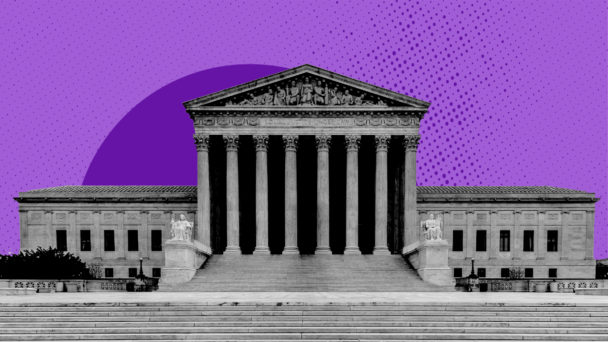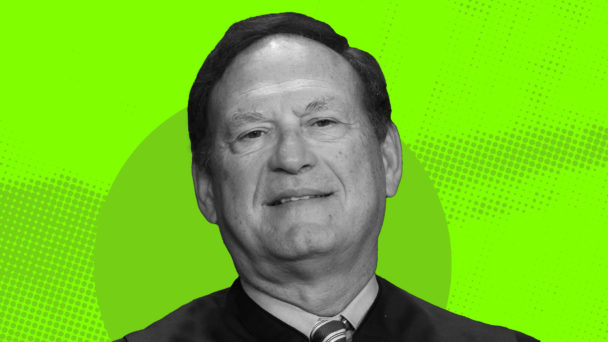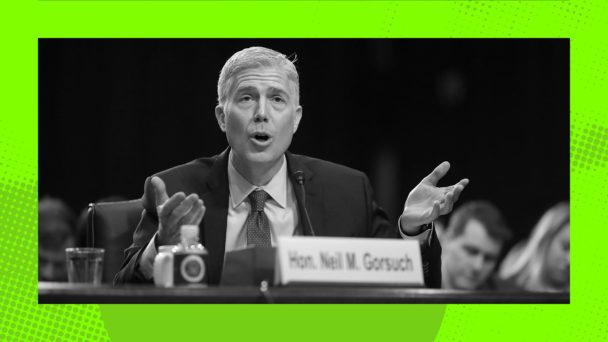The newest member of the Supreme Court, Justice Ketanji Brown Jackson, recently sat for her first broadcast television interview since her confirmation in 2022. Jackson is promoting her memoir, Lovely One, but the conversation wasn’t only about her origin story: CBS’s Norah O’Donnell also questioned Jackson about her views on the Court’s ethical standards, or lack thereof. And Jackson made clear that she’s open to making the justices’ fake ethics code substantially more real.
“A binding code of ethics is pretty standard for judges,” Jackson said, alluding to the existing Code of Conduct for United States Judges, which applies to all federal judges except those sitting on the Supreme Court. “I guess the question is, ‘Is the Supreme Court any different?’” she continued. “I have not seen a persuasive reason as to why the Court is different than the other courts.”
Pressed a bit further on whether she would support an enforcement mechanism, as President Joe Biden suggested earlier this year, Jackson said she would not comment on “particular policy proposals,” but does not have “any problem” with enforceability “as a general matter.” With respect to her personal code of ethics, Jackson explained, “People are entitled to know if you’re accepting gifts as a judge, so that they can evaluate whether or not your opinions are impartial.”
With these comments, Jackson joins Justice Elena Kagan as the only sitting members of the Court to publicly express openness to a revamped ethics code. Even as Kagan defended the Court at a conference last month, she recognized that the code’s toothlessness makes it fair game for criticism. “Rules usually have enforcement mechanisms attached to them,” she observed. “This set of rules does not.” Kagan also stated that an enforcement mechanism made sense “both in terms of enforcing the rules against people who have violated them, but also in protecting people who haven’t violated them.” If a justice were wrongly accused of misconduct, for instance, actual ethics enforcement could exonerate them.
None of the Republican justices have made similar comments, probably because doing so would get in the way of their unethical antics. Justice Clarence Thomas, for example, has accepted upwards of $4 million in gifts in his time on the bench, including yacht trips with his billionaire buddies to Greece and Indonesia. Justice Samuel Alito literally let his freak flag fly after the January 6 insurrection, displaying an upside-down American flag—a symbol of support for Donald Trump’s attempted coup—in front of his suburban Washington home. (Alito blamed his wife, Martha-Ann.)
This is not only a problem among the furthest-right justices, though; the Supreme Court as a whole has long seemed hostile to the notion of judicial ethics. The Court, led by Chief Justice John Roberts, spent years shrugging off recommendations to institute stronger ethical standards before public pressure prompted it to adopt the current joke of a code in 2023.
And conservatives continuously act as if any effort to keep the Court accountable will doom America’s experiment with democracy. Just yesterday, ProPublica and Documented reported on the head of an influential right-wing organization, the First Liberty Institute, who in a call with supporters called Kagan “treasonous” and “disloyal” for her support of an ethics code. For its efforts to rally conservatives against Court reform, First Liberty received heaps of praise from none other than Thomas’s wife, Ginni. “I cannot adequately express enough appreciation for you guys pulling into reacting to the Biden effort on the Supreme Court,” she wrote in an email before hitting the Caps Lock key. “YOU GUYS HAVE FILLED THE SAILS OF MANY JUDGES. CAN I JUST TELL YOU, THANK YOU SO, SO, SO MUCH.”
The First Liberty Institute told donors that if the Court were reformed, “our country will be over and the rule of law will be over.” In her interview, Jackson characterized the popular support for change differently. “People are focused. And they’re energized. And they are evaluating the structure, and the function of the Court,” she said. “And that’s the way democracy works.”





